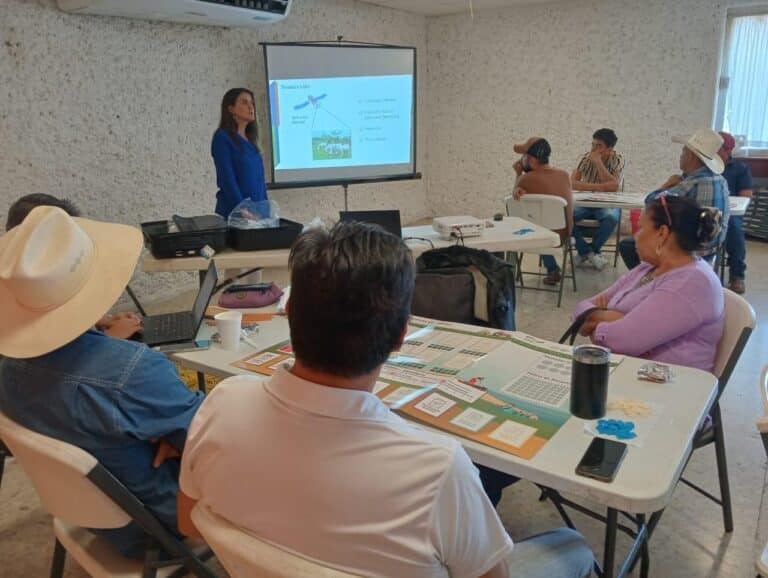It afforded an excellent opportunity to share thoughts on Dr. Otero’s vision, operational focus and thematic areas being considered for the Institute’s new Medium Term Plan (2018 – 2022).

Canada, Dr. Audia Barnett, IICA Canada Representative, Dr. Manuel Otero, Director General, IICA,
Mr. Lloyd Day, Deputy Director General, IICA, Mr. Paul Glover, President, Canadian Food Inspection Agency.
Dr. Manuel Otero was inaugurated as Director General (DG) of IICA on January 15, 2018 and by February 21st, he was in Canada! This was no accident, as Canada is a world leader in agri-food trade and innovation, and it has recently launched its new international assistance policy. It was also an ideal chance to remind stakeholders that IICA presents an excellent avenue to connect complementary opportunities in Canada, Central America, the Caribbean Community (CARICOM), and the Andean Community.
Canada is also on IICA’s Executive Committee this year. The focus of the 2-day visit was introducing key stakeholders to the new DG as well as to discuss themes of mutual interest. It afforded an excellent opportunity to share thoughts on Dr. Otero’s vision, operational focus and thematic areas being considered for the Institute’s new Medium Term Plan (2018 – 2022).
Throughout the meetings, which included decision-makers and senior staff members in the International Development Research Centre (IDRC), International Institute for Sustainable Development (IISD), Agriculture and Agri-Food Canada (AAFC), Canadian Food Inspection Agency (CFIA), Health Canada, Global Affairs Canada and the CARICOM diplomatic representative, several common messages were conveyed by the DG.
- Action will be taken to ensure the Institute is less bureaucratic and more efficient, increasing the use of regional platforms.
- The Caribbean, Central America (particularly the Dry Corridor) and Northern Andean region will be sub-regions for special attention.
- There will be a new Strategic Alliance Map and proactive approach with respect to gaining external resources
- Private Sector engagement will be undertaken.
Additionally, 5 themes for technical cooperation were proposed for consideration: Agricultural Health & Food Safety, Trade & Integration, Territories & social inclusion, Competitiveness and the Bio-economy and Resilience in Agriculture.
There was unanimous agreement on the themes being considered for IICA’s new MTP, particularly noting the synergies with Canadian priorities. Furthermore, Federal Government officials, acknowledging the success that Canada has with private sector partnership, offered to share best practices and lessons learned.
Although brief, the mission, which comprised the DG; Deputy Director General, Lloyd Day; and the Senior Advisor to the DG, Jorge Werthein, was deemed a success. To echo the recommendation of a well-connected CEO to the DG …”Come often”!
For more information:
Dr. Audia Barnett
audia.barnett@iica.int











